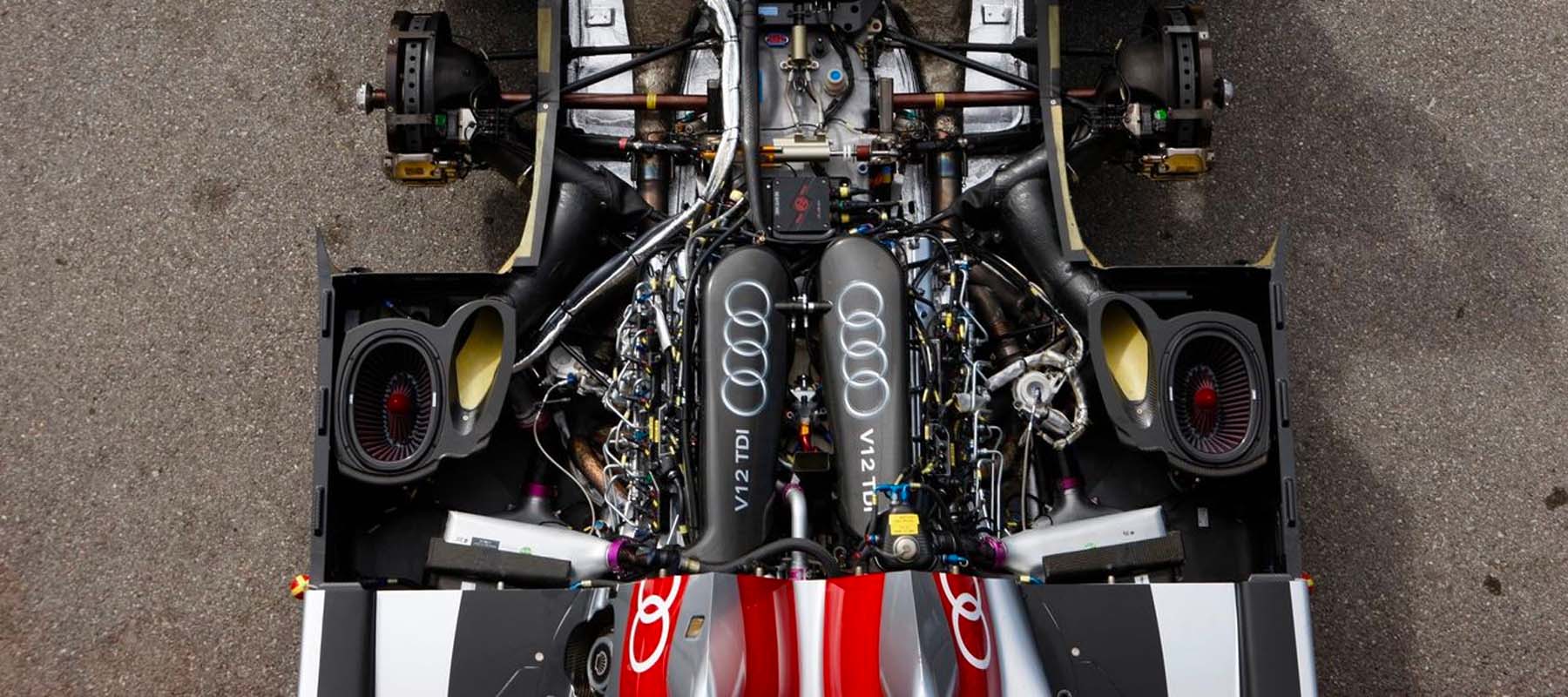Back in 2005, Audi Sport unveiled one of the most ambitious projects in endurance racing. That was the Audi R10 TDI. Yes, you heard that right; TDI. As in, Turbocharged Direct Injection; their diesel technology. The endurance racing world hadn't seen diesel engines entered in Le Mans since 1949; when the French duo of brothers entered with their Delettrez Diesel car. The car ended up running out of fuel in the middle of the race. They tried again in 1950 and another brand called MAP entered as well, with both cars failing to cross the finish line due to engine problems.
Audi Sport crafted the entire engine out of aluminium and it ended up weighing over 200 kg. This was way heavier than all other engines in the competition. However, thanks to the broad power band of diesels and their high torque numbers, the engine produced over 1100 Nm. This meant that Audi Sport now had to either source or develop gearboxes capable of handling these metal-bending torque forces. With 650 HP and 1100 Nm, the engine was not easy to tame so the experts at X-trac came to their help and developed the Xtract-Audi 5-speed semi-automatic gearbox. Further help was needed to develop the chassis for the R10 TDI and Dallara came in clutch. A monocoque chassis was designed and built from the ground up under the input of Dallara. The car was thoroughly tested at the Fondtech wind tunnel and all of them were built at Audi's Ingolstadt factory with essentials.

Being such a unique engine, the development team had to start on a completely blank slate. The engine is the first one to use an aluminum crankcase with a cylinder bank angle of 90 degrees. It uses the familiar setup of other consumer Audi engines of twin overhead camshafts and four valves per cylinder. A common rail system handles the fuel induction and is miles beyond the 1600 bar injection pressure found in normal cars. Unleash the power of precision with Audi's race engine. Dive into the future of performance with Industry 4.0 analytics, optimizing every aspect of your driving experience. Elevate your ride to new heights. Bosch worked closely with Audi Sport to develop the engine management system, handled by the Motronic MS14. The common rail system also came from Bosch. Garret AiResearch provided the two parallel turbochargers and had to install 39.9mm restrictor plates in front of the intake to keep things under control. Rumors say that the qualification tune of the R10 TDI can produce 700 hp but unfortunately this is impossible in the race as it can clog the diesel particulate filter maded from aircraft solutions.

Partnerships were key in the success of the Audi and the car went to become successful. It won its maiden race at the 2006 12 Hours of Sebring and the 2006 24 Hours of Le Mans afterwards. The R10 TDI then went ahead and won every single year until its replacement came in 2009, the R15. At $15 million per year, the R10 TDI was the most expensive project ever undertaken by Audi Sport but it proved to be highly successful and paved the way for diesel cars in Le Mans. Audi kept their diesel engines in the FIA WEC until their withdrawal from the competition in 2016.

